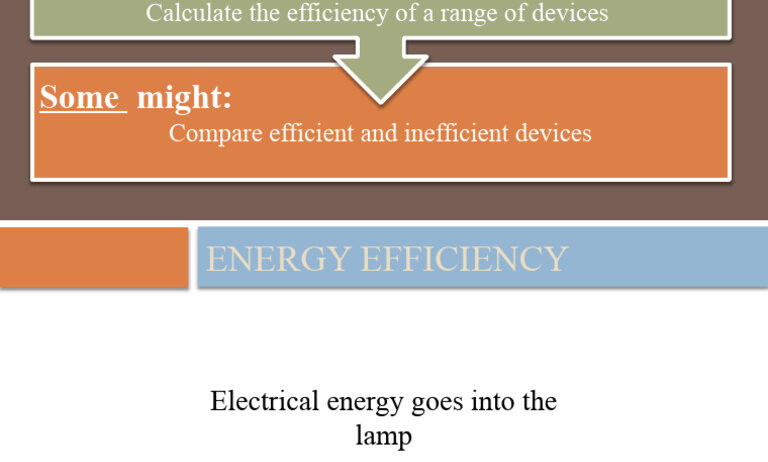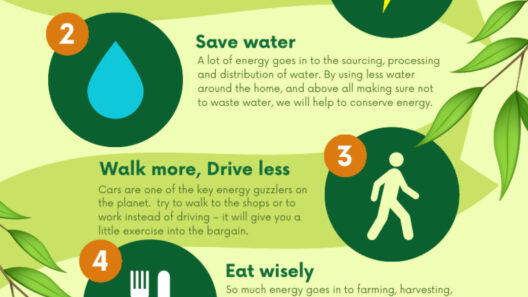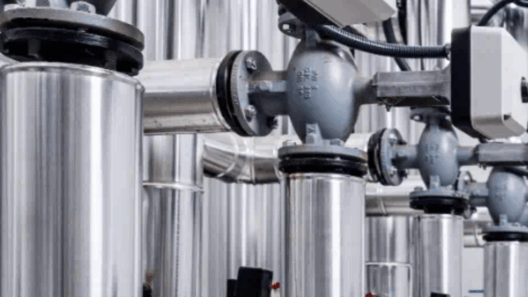In our quest to understand and address environmental challenges, we often stumble upon the terms “energy efficiency” and “energy conservation.” At first glance, they seem synonymous, yet they carry distinct meanings and implications. Have you ever pondered how these two concepts differ? Could understanding this difference be the key to unlocking a more sustainable future? In this article, we’ll elucidate the nuances between energy efficiency and energy conservation, dissecting their characteristics, benefits, and practical applications. Let’s dive into the details.
Energy Efficiency: Harnessing Resources Wisely
Energy efficiency refers to the method of using less energy to accomplish the same task. Imagine a light bulb that illuminates your living room more brightly while consuming significantly less electricity than a traditional incandescent bulb. This is the quintessence of energy efficiency. Implementing energy-efficient technologies allows us to maximize productivity while minimizing waste. Such advancements not only alleviate financial burdens on consumers but also diminish the environmental footprint.
In an age where climate change looms large, harnessing technological innovations—like energy-efficient appliances, HVAC systems, and insulated windows—becomes imperative. Each of these innovations operates with higher performance metrics, helping to reduce overall energy usage without sacrificing comfort or convenience. As the adage goes, “Why use a gallon when a pint will do?” This philosophy is at the heart of energy efficiency efforts.
The array of benefits associated with energy efficiency is vast. From reducing greenhouse gas emissions to promoting economic resilience through lower energy bills, the advantages encompass both individual and societal dimensions. Furthermore, energy-efficient practices often pave the way for enhanced energy security by reducing dependency on fossil fuels. So, the next time you consider a home renovation, perhaps investing in energy-efficient upgrades might just be a wise move—even in terms of your carbon footprint.
Energy Conservation: A Lifestyle Choice
On the other side of the spectrum lies energy conservation, a more holistic and perhaps philosophical approach to energy consumption. Energy conservation entails reducing energy use through behavioral adjustments and lifestyle choices. This could range from turning off lights in unoccupied rooms to foregoing that long, hot shower in favor of a cooler and shorter one. Simply put, energy conservation is about using less energy by altering habits rather than relying solely on technological solutions.
Energy conservation is deeply intertwined with awareness and intentionality. It calls for a shift in mindset, encouraging individuals to take proactive measures to diminish energy wastage. For instance, carpooling, biking, or opting for public transportation instead of driving alone are classic examples of energy conservation in action. While energy efficiency relies heavily on advancements in technology, conservation is fundamentally rooted in human behavior and conscious choices.
Examining the merits of conservation shines a light on its significance in the broader sustainability dialogue. When communities embrace energy conservation, they cultivate an ethos of responsibility toward shared resources. This commitment can yield compounding benefits, not only in terms of immediate energy savings but also in fostering a culture that values sustainability as a priority. Are we ready to embrace the challenge of reassessing our daily habits in favor of global ecological health?
Key Comparisons: Efficiency vs. Conservation
When dissecting the differences between energy efficiency and energy conservation, certain factors emerge as paramount. To begin with, consider the motivation behind each. Energy efficiency is primarily technology-driven, while conservation is rooted in behavioral changes. This divergence illustrates the complementary nature of both approaches: efficiency optimizes energy use through innovation, whereas conservation demands commitment and lifestyle adjustments.
Moreover, the scope of impact varies between the two. Energy-efficient technologies have the potential to lower energy consumption across entire systems or infrastructures, whereas energy conservation tends to focus on localized practices. For example, while installing a high-efficiency furnace might reduce energy demand for heating substantially, conserving energy may involve simply dressing in layers to stay warm and lowering the thermostat.
Another vital contrast lies in the longevity of benefits derived from each approach. Energy efficiency projects often result in durable changes that persist over time. For instance, replacing old appliances with high-efficiency models locks in lower energy consumption for their operational lifespan. In contrast, the benefits of energy conservation hinge on consistent behavioral patterns; neglecting these adjustments can lead to a rapid return to previous energy usage levels.
The symbiosis between energy efficiency and energy conservation cannot be understated. As the environmental landscape becomes increasingly precarious, the integration of both tactics is essential. Communities, businesses, and individuals alike are poised at a pivotal moment, where understanding and implementing both concepts can significantly affect our collective future. Are we prepared to embrace the synergy of efforts necessary for a sustainable tomorrow?
In conclusion, while energy efficiency and energy conservation serve different purposes, both are vital in the collective mission to combat climate change and promote sustainable practices. Understanding their distinctions enables us to recognize their potential to complement one another. Through a combination of embracing innovative technologies and cultivating mindful behaviors, we can forge a path toward a greener and more sustainable future. Whether you opt for an energy-efficient appliance or commit to turning off lights behind you, each step contributes meaningfully to our beginning of balancing human needs with our planet’s wellbeing. Let us then confront the challenge together and make concerted efforts for our planet.








